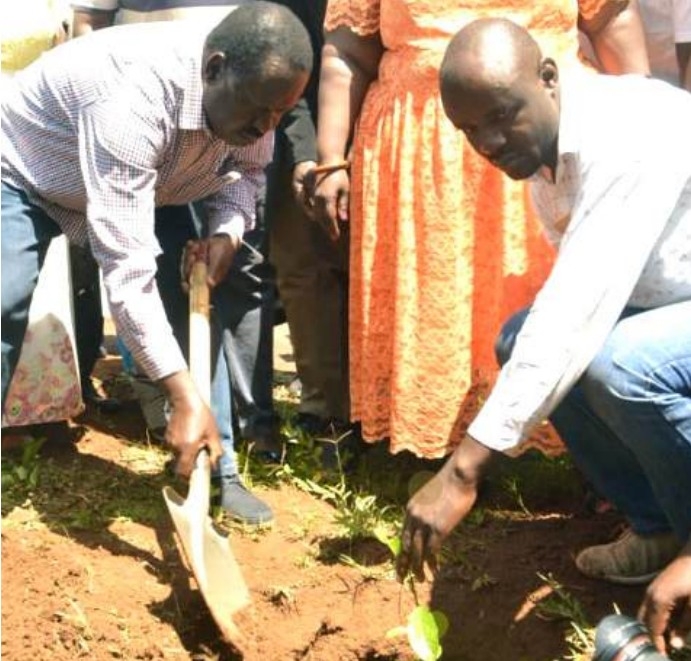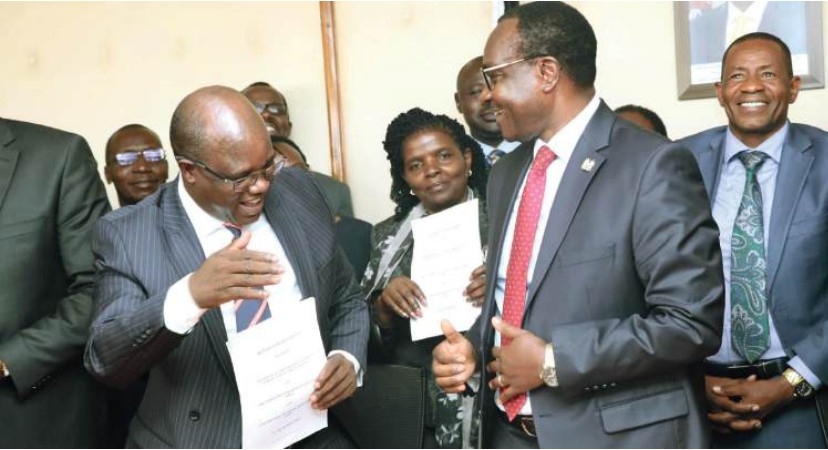Africa is formulating a pricing model for carbon credits to be presented at the upcoming 28th meeting of the UN Climate Change Conference in Dubai later in November.
Carbon credits, also known as carbon offsets, are permits that allow the owner to emit a certain amount of carbon dioxide or other greenhouse gases.
One credit permits the emission of one tonne of carbon dioxide or the equivalent of other greenhouse gases.
The carbon credits market is where individuals and companies purchase offsets to compensate for their own greenhouse gas emissions, without being legally obliged to do so.
A carbon credit represents one tonne of carbon dioxide that has been removed from the atmosphere.
Africa accounts for the smallest share of global greenhouse gas emissions—3.8 per cent.
China, the United States, and the European Union account for 23 per cent, 19 per cent, and 13 per cent of global emissions respectively and are the largest amounts.
According to the United Nations Environmental Programme (UNEP), global carbon dioxide emissions from fossil fuels and industry are estimated at 37.12 billion metric tons (GtCO₂).
In an interview with the Star, the Africa Union Commissioner in charge of Agriculture, Blue Economy and Sustainable Environment, Josefa Leonel Correia Sacko said the current model does not favour the continent.
"Africa’s market currently sees the continent earning less than $10 per tonne of carbon while other regions can secure over $100 for the same amount,'' Correia Sacko said.
According to her, if you take two carbon credits, one generated in the Global North country and one generated in Africa, assuming that they’re both at the same level in terms of integrity, there is no particular reason why the European carbon credit should sell 10 times more than Africa.
"That price disparity is a cause of concern for us. It’s something that we’re becoming more vocal about in terms of speaking to the global bodies. We are finalising on a proposal to present at the Dubai meet where Africa will speak in one solid voice,'' she said.
She insisted that Africa is not going for less than fair price, noting that the continent actually be the one to set prices as it generates less carbon but suffers the greatest impact of climate change.
"They cannot emit most carbon and set a price at which we buy. It should be the other way around. A fair pricing model is urgently needed,'' she said.
The European Union Emission Trading System is the largest carbon market based on value and accounted for roughly 87 per cent of the global market size in 2022.
The value of the global carbon market soared 13.5 per cent in 2022 to a record high of Є865 billion euros. This growth was mainly due to an increased demand for carbon permits, which culminated in surging prices.
She also lamented, that although African countries are among the most vulnerable to climate change effects and have significant natural assets that could provide global climate solutions, the continent receives a small amount of global climate finance.
The estimated annual cost of Africa’s climate adaptation by 2050 is $50 billion and the region has the world's highest potential for renewable energy.
Yet the continent currently receives $19.5 billion per year in total climate finance and only three per cent of global investment in clean energy.
Her sentiments are supported by Serah Makka, director for Africa at ONE Campaign who insists that the key to unlocking the untapped potential of the continent isn’t handouts or second-hand solutions from rich nations but removing the barriers.
"African countries possess the tools, talent and renewable resources to fuel their own growth and be at the vanguard of efforts to tackle climate change, poverty and inequality everywhere,'' Makka said.
She adds that the potential is being blocked by a broken global financial system that denies them access to the affordable finance needed to unleash this potential.
The continent is currently meeting in Nairobi for the inaugural Climate Summit to deliberate on climate finance ahead of Cop28 in Dubai.
















![[PHOTOS] How ODM@20 dinner went down](/_next/image?url=https%3A%2F%2Fcdn.radioafrica.digital%2Fimage%2F2025%2F11%2F99d04439-7d94-4ec5-8e18-899441a55b21.jpg&w=3840&q=100)
